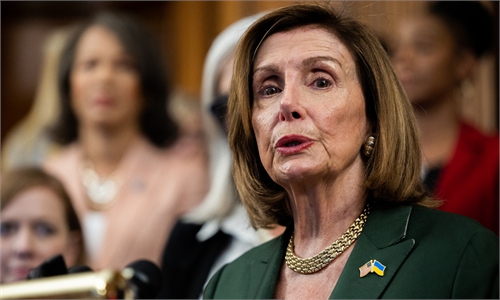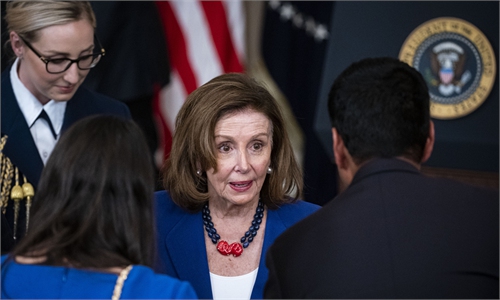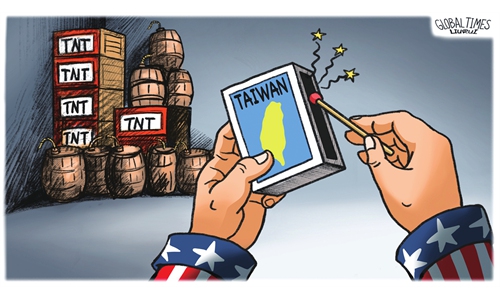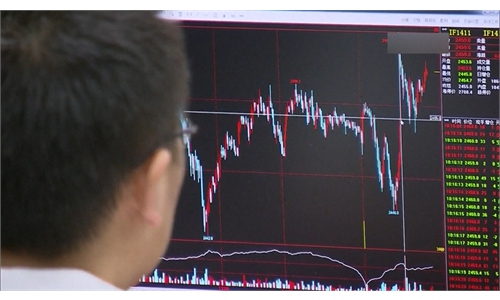DPP faces backlash following mainland's import suspensions, slammed for damaging residents' interests
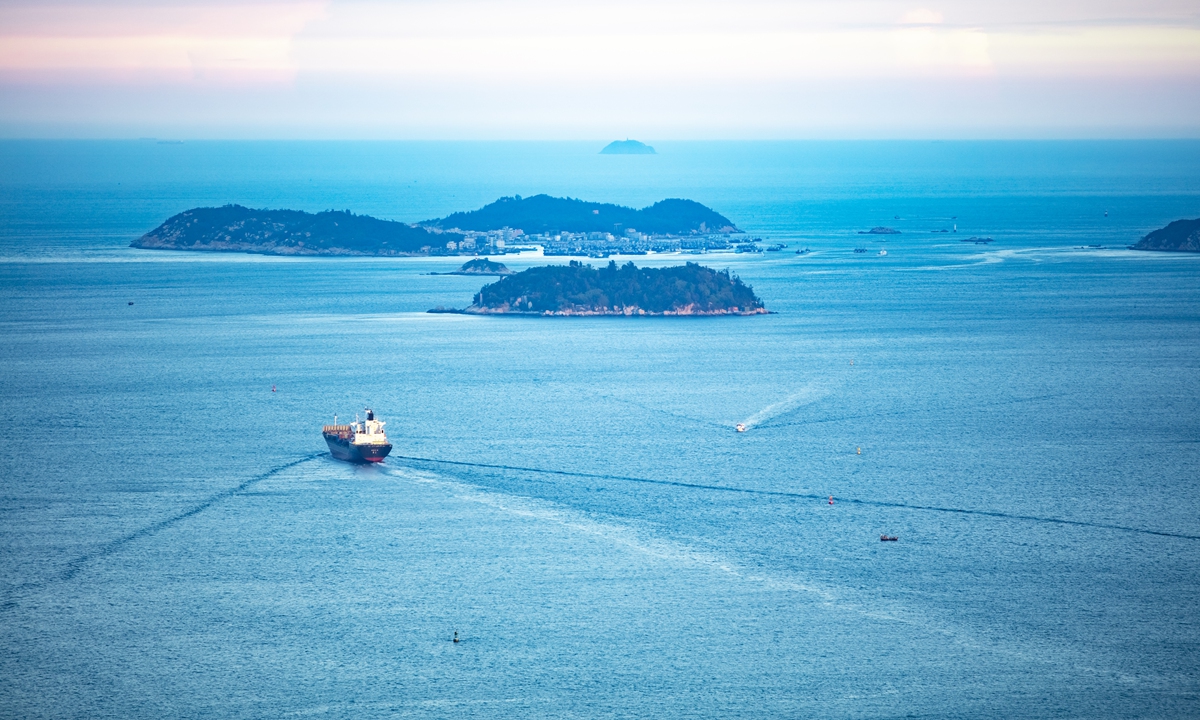
A view of the Taiwan Straits is seen from Xiamen port, in East China's Fujian Province. Photo: IC
Following the Chinese mainland's suspension of imports of several agricultural products from the island of Taiwan, which is viewed as a sort of punishing fallout from US House Speaker Nancy Pelosi's visit, residents from the island's agricultural and business sectors, as well as some local netizens, have expressed dissatisfaction with the secessionist Democratic Progressive Party (DPP), given the close connection between the island and the huge mainland market.
Analysts said that for the sake of Taiwan residents, the mainland did not adopt tougher sanctions, but they need to realize that voting for the DPP will not lead to good results. The mainland will still actively promote cross-Straits economic and trade bonds, but at the same time, it will continue to strengthen the crackdown on and punishment of Taiwan secessionists.
Starting on Wednesday, Chinese mainland customs authorities suspended the entry of citrus fruits including grapefruits, lemons and oranges, as well as two types of fish (chilled large head hairtail and frozen horse mackerel) from the island, in accordance with regulations and food safety requirements.
Those goods have been repeatedly found to be harboring pests or contaminated with excessive chemicals.
According to a Yahoo News online poll released on Thursday, over 50 percent of respondents are worried that the mainland's suspension of products from Taiwan may be a drag on the local economy, regarding the island's export-oriented economy and small market.
Taiwan's 2021 agricultural trade profile showed that the mainland is the island's largest agricultural export market. Statistics showed that in 2021, the ratio of citrus fruits exported to the mainland was as high as 86 percent, and the volume of fresh or refrigerated large head hairtail was 9,146 tons, all of which was exported to the mainland.
About 50 percent of the volume of frozen horse mackerel was sold to the mainland.
In another Yahoo online poll launched on Thursday, more than 62 percent out of 13,000 Taiwan netizens were worried about the mainland's pressure after Pelosi's visit, and 79 percent said that they were following the news about the mainland's military drills.
According to Taiwan-based media outlet udn.com, a manager of a large food factory in central Taiwan recently blamed the DPP authorities, as they were "going their own way and making people suffer. It's terrible!"
A fruit farmer surnamed Zhang from Yunlin told reporters that the DPP's political manipulation had caused his grapefruits to be excluded from the mainland market. He said it's not easy to get a chance to sell fruit to the mainland, and he felt upset but didn't know what to do.
Chu Ting-yu, a Kaohsiung-based politician who owns a local food factory, said "many businesspeople don't know what to do. My demand is simple: the DPP should open a window of dialogue with the mainland, and not ignore the rights and interests of enterprises."
According to a Thursday poll from udn.com, 70 percent of respondents in Taiwan had no confidence in Pelosi's "determination to safeguard Taiwan's democracy." An earlier poll from udn.com showed 65 percent of respondents would not welcome her visit.
The Taipei stock market was the only major Asian market that fell on Thursday. The food sector fell the most, with a 3.06 percent decrease. Experts said that the decline in Taipei stocks was actually due to the tension across the Taiwan Straits, and "the truth about the island's economy is being reflected in the stock market."
The mainland has suspended imports of 2,066 items of food from more than 100 businesses in Taiwan, accounting for 64 percent of all registered companies, local media reported on Tuesday.
The mainland didn't use the term "sanction" to describe the suspensions. It was a punishment and a warning. If sanctions were imposed, the means would be more severe, Wang Jianmin, a senior cross-Straits expert at Minnan Normal University, told the Global Times on Thursday.
Tang Yonghong, deputy director of the Taiwan Research Center at Xiamen University, told the Global Times that although the mainland has not yet imposed real economic sanctions on Taiwan, the DPP authorities' provocative moves have basically met the conditions that trigger sanctions.
The DPP authorities colluded with external forces for secession and poisoned the cross-Straits atmosphere, Tang said.
"If the mainland opts for economic sanctions, it may terminate the Economic Cooperation Framework Agreement (ECFA)," Tang said, noting that the ECFA was signed on the basis of the 1992 Consensus, but the Consensus was almost abandoned by the DPP.
Taiwan had a trade surplus of more than $170 billion with the Chinese mainland in 2021.
Some Taiwan-based media hyped that the mainland's economic punishment could antagonize the public in the island, which experts refuted that this is not a mainstream view.
Wang said the island lacks reflection over the deteriorating cross-Straits relations under the DPP authorities' stance of hostility against the mainland. However, the latest opposition to the DPP authorities may signal that Taiwan residents are feeling that the mainland has actually been the more restrained side for many years, as many Taiwan residents have never thought about the mainland's measures of punishment, Wang said.
In view of the overall interests of the Chinese nation, the mainland has long been taking friendly actions to benefit Taiwan businesses, Wang said, "but the current situation shows that the ideology of secession has eroded the mainland's kindness to the island, with the DPP having control of public opinion and resources."
The mainland does not target the Taiwan residents. But it is necessary to let more people in the island realize that voting for the DPP will not lead to good results. If they uphold the 1992 Consensus, they will enjoy the dividends of peaceful development, Tang said, taking the example of the peaceful era of Ma Ying-jeou, a pro-reunification Taiwan regional leader, from 2008 to 2016.
The mainland will continue to promote cross-Straits exchanges and economic and trade cooperation. But the crackdown on Taiwan's risk-taking secessionists will continue to intensify, Wang stressed.

